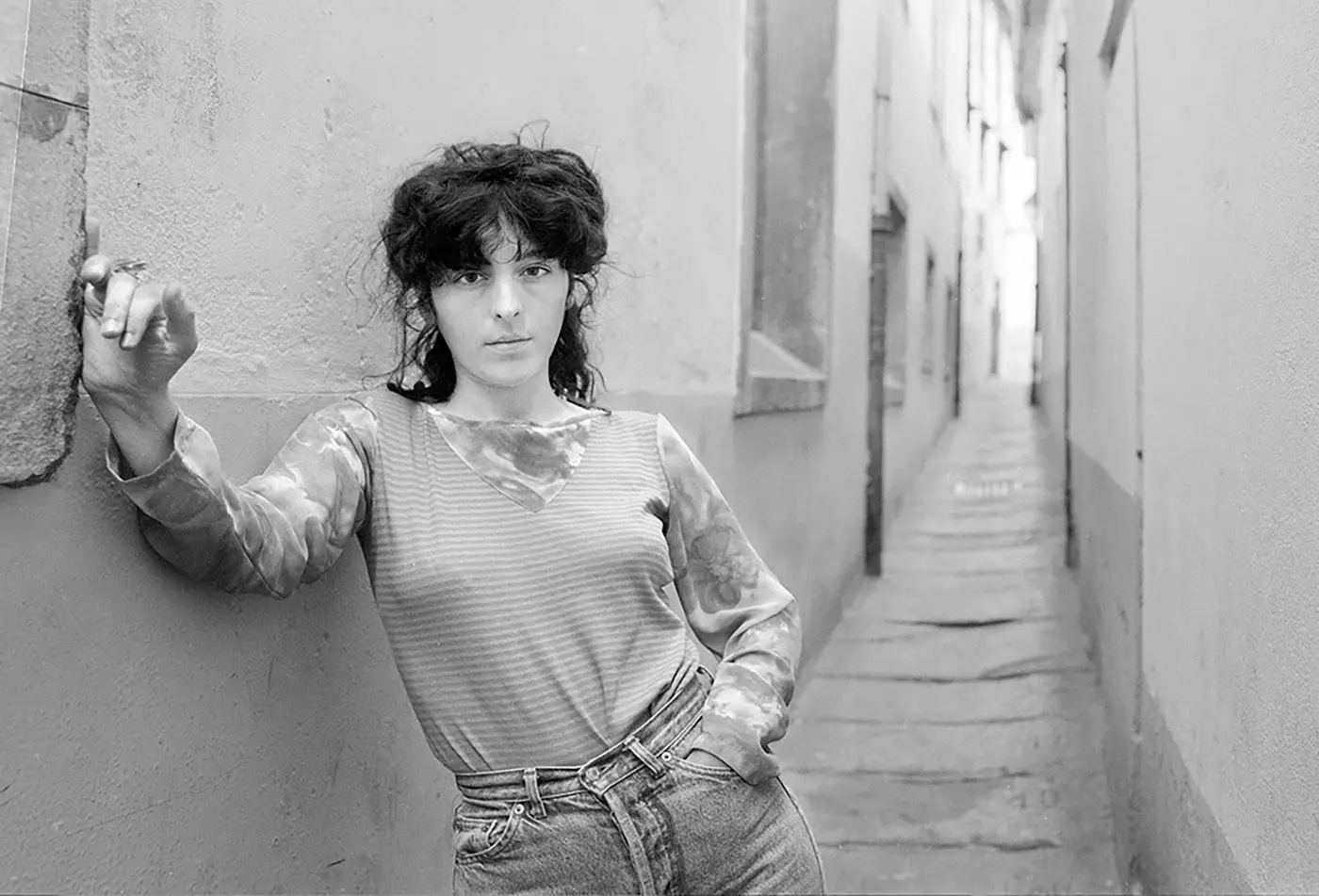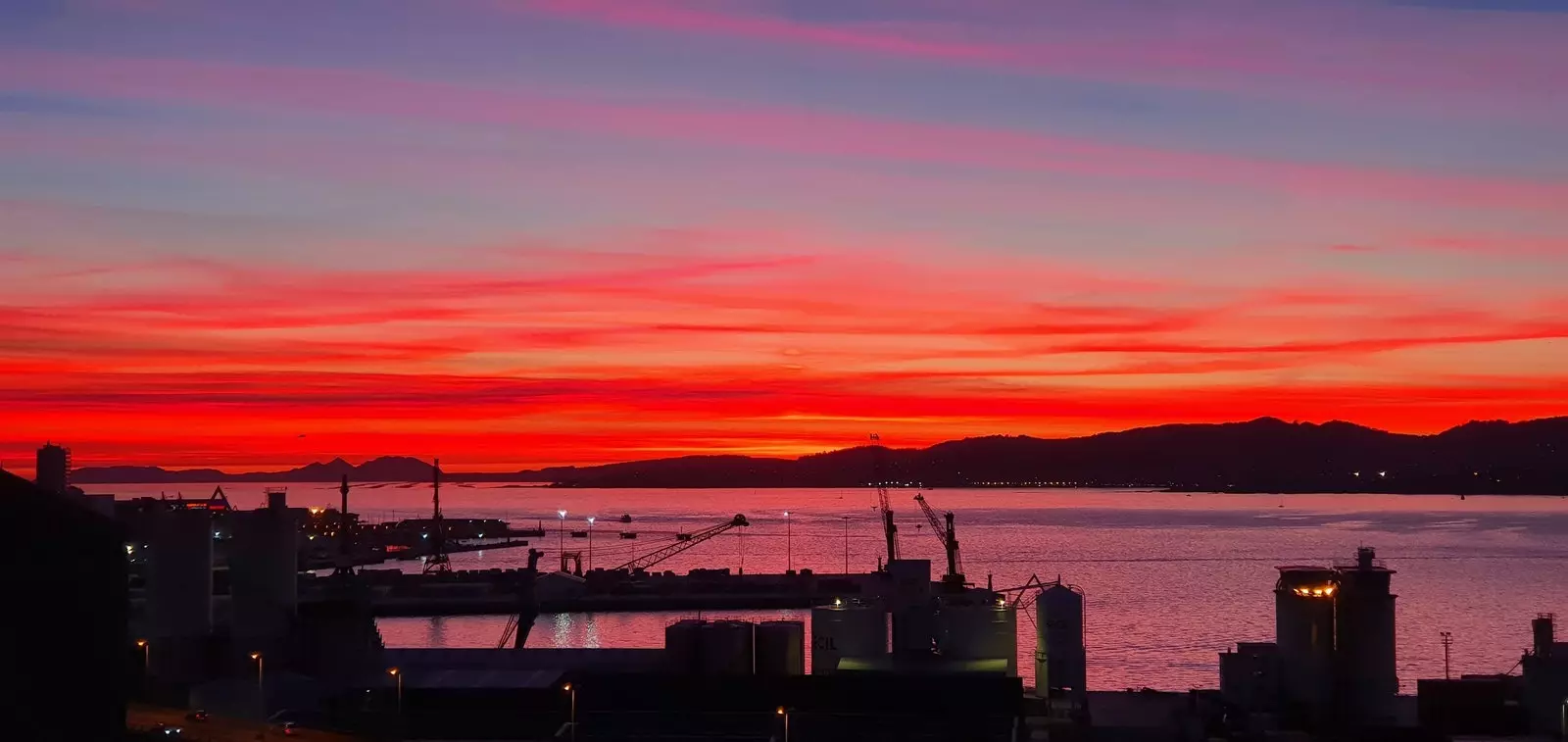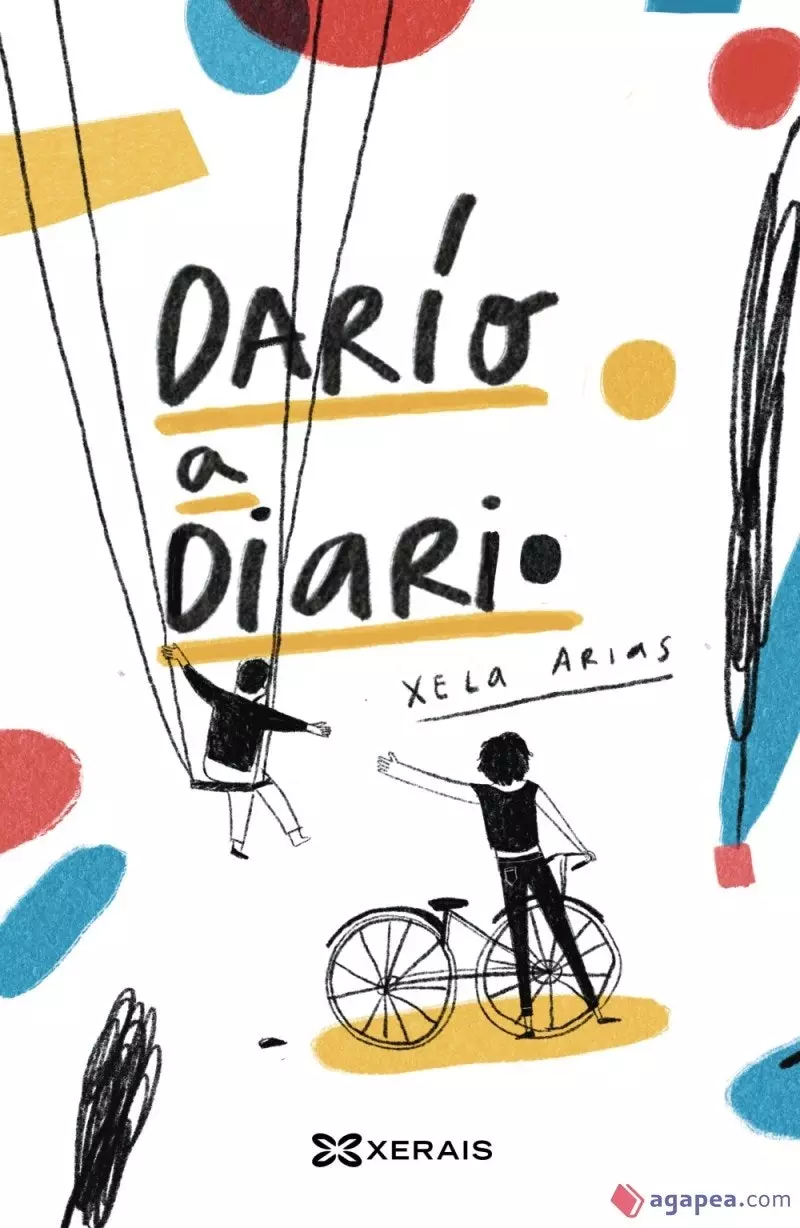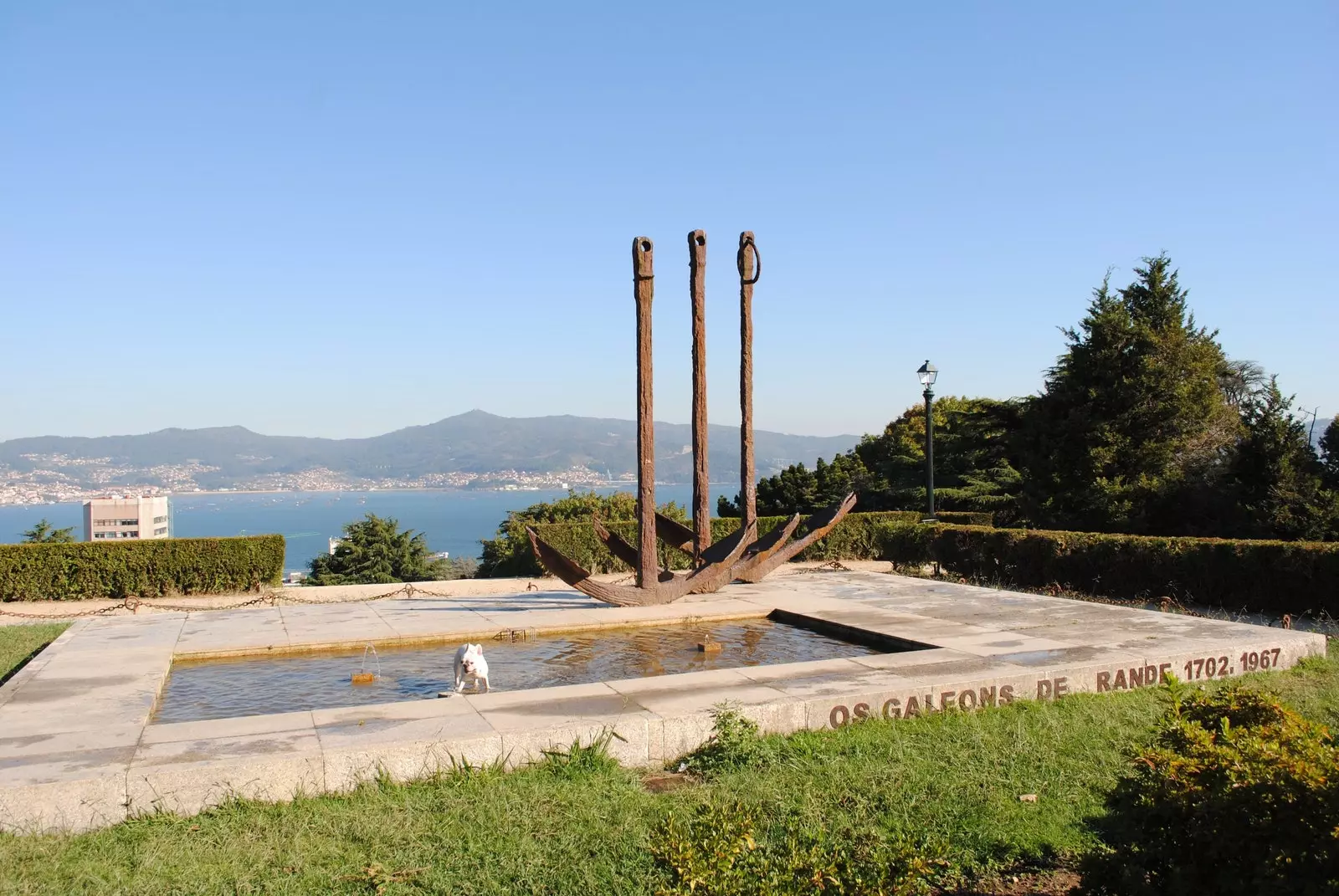
Xela Arias
In an interview, Pascal Quignard He recognized that what marked him most deeply when she visited the tomb of Chuang-Tse in China was how the place had become a place "so Chuang-Tse"; a primitive and indomitable jungle, where the spirit of the Chinese poet throbbed . The same thing happens when one visits Yorkshire, the scene of wuthering heights , those steep cliffs and muddy paths where the sky does not provide shelter and where the wind insists on erasing all traces other than those of Catherine and Heathcliff, characters in Emily Brontë's novel.
In the poems of Xela Arias , versatile artist who is honored in the Galician Letters Day , beats the city and the sea, especially Vigo. “Denuncia do Equilibrio [1986, finalist for the Losada Diéguez Prize] is the first urban collection of poems written in Spain”, assures the poet Marga do Val (Vigo, 1964), from the same generation as Xela Arias.

Vigo and the sea
The sea, the streets, the leaves of the trees, the horses, the sky intertwine in some indomitable verses whose objective is twist the Galician language, creating a new syntax that is a hymn to freedom . “It is logical that she experimented with the language, played with the grammar and broke the verses: language did not include women , there is an attempt in Xela to fill in those blank spaces with life; those pauses of her verses are filled with daily battles and symbolize the struggle of women for space”, explains Do Val.
Shortly after being born in Lugo in 1962, Arias moved with her family to Vigo , where she resided until her death at the age of 41. “Living in that city it is impossible not to like the sea because it cannot go unnoticed. I guess Xela used to go to the nudist beach of Parra, which is where we all went . Xulio Gil (mathematician, photographer and her partner) portrayed her among rocks in some beautiful images”, says Do Val.
That symbiosis between water and the street beats in verses like:
- Auga do mar when I suffocate
- They are arms of streets that cross cities.
The poet and journalist born in Noia, Ana Romani , she remembers that it is probable that Xela was also assiduous to Cangas do Morrazo.

Xerais Editions
'Dario daily'
'Dario daily'
"The city has been eating the sea as has happened in the area of Bouzas . But 50 years ago, the sea spilled over the city. 50 years ago in the center of Vigo there were cows, and in the 80s, at night, one had the feeling that there was no separation between the sea and the city . For me, Xela is at those crossroads”, insists Do Mar, who coincided at the Alma Pub (Rúa Roboadores, 4) with Xela in 1982. “The music was different, lively, new wave, ethnic…”, she describes. In 1996 they met at a congress of poets from the Garcia Barbon Center , the theater of Vigo. “She told me that she was writing about motherhood; namely, Dario Daily , with that book she anticipated the current vision of motherhood where it is compatible with feminism”, adds Do Val.
The drift through the asphalt of cities that were looking for themselves, like Vigo in the 80s , was for Xela Arias a life decision. “In the 80s, going out at night was brutal, Vigo grew chaotically and in that expansion, women found a way to seek themselves and reaffirm their identity . Vigo was looking for herself in her solitude, just as Marga did with herself”, says Do Mar.
That escape that Xela defends has her vanishing point in the sea , but also in the fortuitous encounter in the streets. In her verses she defended that free wandering through space, something difficult due to covid restrictions; she also spoke the author of the suffocation that the house caused her to be locked up. Arias was rebelling against the home, when it becomes a cage where we lock ourselves up.
- And everybody-am sure- they are walking
- I was the one who had a key
- golden for leaks! (is everything anxo é terrible?)
- forgive me-recognize me-I lost myself again...
- and this losing was a hallucination with a flaccid reality (...)

The sea of Vigo as a vanishing point
- (...)
- pick me up
- I bet screaming at night
- Se che falo non collo no quadrilateralo da habitacion Saio
- Past or sun by xunguín fios nebulas onte
- We brothels of hours that are-sen-sun- the streets Internal vision for scattered inhabitants Degrading senses-a lapse- interior nos
- Xunguir fios nebulae foi say
- Complaint-the balance of stays (...)
Her voice is so necessary today in these conditions, today that it is so necessary to feel anointed by the streets . The city that Xela Arias defended was not, however, the city that dehumanizes us and turns us into machines , but the city of free wandering, the city of the fortuitous:
- Or your car consumes kilometers of asphalt
- to want] Ata che tremeren os pés and arms like a carburetor
- on going.
In his second book Tigres coma cabalos (1990), which combines photographs, mostly nudes made by Xulio Gil , he trots the horse, Chinese horoscope and symbol of nonconformity with which to escape from conventions and routine. Xela Arias despised the crowd that blindly followed conventions, she bet on acting on instinct . In her bet for her escape, one of her symbols in her poetics were the animals, and especially, the horse, to which she attributes an almost magical character:
- —runaway horses—
- they were runaway horses pola praia
- horses / runaway / polas praias / da cidade
Approaching life with the senses was a constant in Arias, also a translator and editor. She “she always defended relating to the environment with her hands; in Tigers as Horses , the references to touch are constant”, explains Do Mar. That synaesthetic cadence feeds on alliterations and repetitions.
- Break-fingers we desire and remember That behind the laughter there are farrapos dun tempomal
- thought-out?
- (...)
- But my fingers stick to a firm area
“Xela Arias was a very affectionate woman who enjoyed doing everything with her hands: she painted the word. And she was a lot of shaking hands and melting into hugs ”, adds the poet Marga Do Mar.
The poet Ana Romaní, born in 1962, the same year as Xela, she coincided in recitals and magazines with Arias , as in the book-cedé daquelas that sing (1997), where Xela Arias wrote who understands , dedicated to Rosalia de Castro. “There is a desire for freedom and independence in Xela, her work is nonconformist, subversive . In her participatory flight, all the collective instruments converge, in a musical sense: she always chooses to position herself outside of it, with the defeated. The Galician language was extremely important to her, and she defended it with verses such as Falamos antigas linguas, where there is an identification between language and skin, as part of identity..
“Language is fundamental in Xela that twists it, taking it to its limits. The poet makes her position clear when she says 'I write in Galician because I'm here and, from logo, Galicia belongs, still, defeated years '", specifies Ana Romaní.
